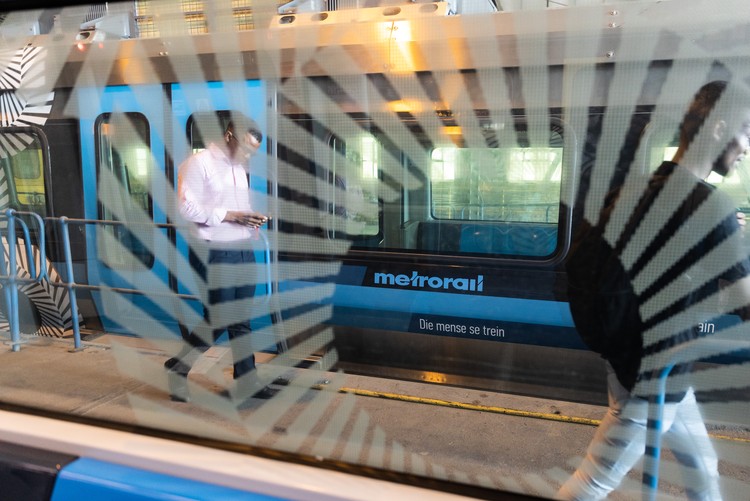President gives go-ahead to dig into corruption at PRASA
But it’s four years late, says activist
Metrorail services deteriorated countrywide because of corruption. Archive photo: Ashraf Hendricks
- The Swifambo “tall trains” debacle and Siyangena’s security automation at train stations are two main issues to be investigated by the Special Investigating Unit.
- Both of these tenders took place more than a decade ago.
- Civil litigation in the Swifambo and Siyangena matters has already found against the deals.
President Cyril Ramaphosa has signed a proclamation empowering the Special Investigating Unit (SIU) to probe corruption at the Passenger Rail Agency South Africa (PRASA), particularly in relation to deals with Swifambo and Siyangena.
The proclamation was published in the Government Gazette on Friday, with the SIU publishing a statement on the issue on Monday.
The move has been a long time coming. Calls for the National Prosecuting Authority and the Hawks (Directorate for Priority Crime Investigation) to take action against those implicated in state corruption related to the Swifambo and Siyangena debacles have been ongoing for more than six years.
The SIU has been empowered to investigate violations of the Combating of Corrupt Activities Act, specifically PRASA’s purchase of locomotives from Swifambo and PRASA’s deal with Siyangena to supply and maintain an integrated security access management system at various train stations across the country.
Swifambo was appointed in 2012 to supply locomotives worth R3.5-billion to PRASA, with about R80-million paid over to the ANC, according to testimony before the Judicial Commission of Inquiry into State Capture under Judge Raymond Zondo (the Zondo Commission) by former PRASA board chairperson Popo Molefe. The locomotives acquired from Spanish company Vossloh did not fit PRASA’s rail network. In 2017 the Johannesburg High Court found the deal to be corrupt.
The Siyangena investigations relate to PRASA – under former CEO Lucky Montana – extending the company’s scope of supplying automated access security control at Nasrec and Doornfontein train stations to seven other stations countrywide under the guise of 2010 FIFA World Cup readiness requirements. As documented in then Public Protector Thuli Madonsela’s “Derailed” report, the nearly R2-billion contract extension occurred after the World Cup and was not implemented in many of the stations, such as in Cape Town.
The SIU has also been given the go-ahead to investigate serious maladministration relating to fraudulent liability claims processed and paid by PRASA’s Group Insurance Department, including claims paid as one time vendor payments. The probe will also extend to employment of ghost employees identified by PRASA’s Project Zivese in August 2021, according to the SIU’s statement.
SIU spokesperson Kaizer Kganyago told GroundUp the unit had been “dealing with PRASA for years”, but they could not proceed without a proclamation. This is why they requested one from the President via the Department of Justice.
Kganyago would not be drawn on when it was submitted or how long the SIU had been waiting for Ramaphosa to sign the proclamation, but he said a lot of groundwork had already been done regarding their investigations, which had started before the Zondo Commission.
He said the Zondo Commission had helped uncover information but now the SIU “needs to get to the bottom of it”.
“It’s a mammoth task,” he said.
Civil society organisation #UniteBehind, which has for years been campaigning for investigations and prosecution of corruption at PRASA, were “pleased” at the announcement of the proclamation, said legal officer Joseph Mayson.
However, referring to litigation against Swifambo and Siyangena, as well as the Zondo Commission, Mayson said the proclamation was “four years late”.
“There is a concern that this will make asset forfeiture much more difficult.”
He said it was also unclear what was happening to existing investigations by the Hawks “that were apparently ‘90%’ concluded two years ago”.
PRASA was contacted for comment, but none was received before publication.
Support independent journalism
Donate using Payfast

Don't miss out on the latest news
We respect your privacy, and promise we won't spam you.
Next: Taxi operators stop City from relocating families in Khayelitsha
Previous: More than a decade later, Carolina’s filthy water still puts residents’ health at risk
© 2024 GroundUp. This article is licensed under a Creative Commons Attribution-NoDerivatives 4.0 International License.
You may republish this article, so long as you credit the authors and GroundUp, and do not change the text. Please include a link back to the original article.
We put an invisible pixel in the article so that we can count traffic to republishers. All analytics tools are solely on our servers. We do not give our logs to any third party. Logs are deleted after two weeks. We do not use any IP address identifying information except to count regional traffic. We are solely interested in counting hits, not tracking users. If you republish, please do not delete the invisible pixel.

